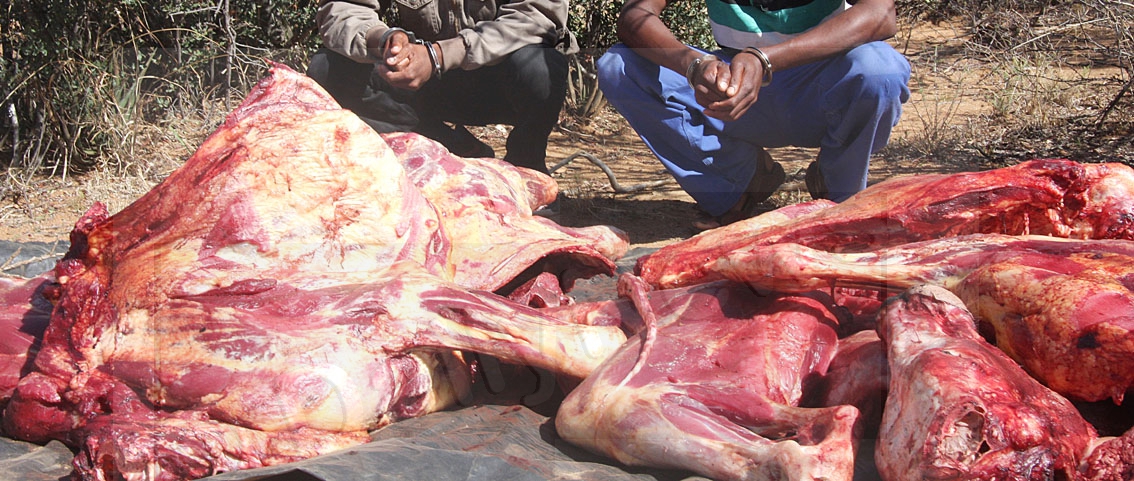Parliament passes energy authority bill
22 Aug 2022
Parliament on Friday passed the Botswana Energy Regulatory Authority (Amendment) Bill 2022, which amends the Energy Authority Act of 2016.
The bill was tabled on a certificate of urgency by Minister of Minerals and Energy, Mr Lefoko Moagi. Presenting the bill for second reading on Thursday, Mr Moagi said the amendments sought to allow government, through a designated public body, to maintain strategic reserves and commercial trading stocks for petroleum products.
He said it would ensure continuity of supply of petroleum products and ensure meaningful participation of citizen owned oil companies in the value chain of the petroleum industry.
“The amendments to this act further seek to provide for the establishment of a percentage of the import quantity, to be known as the petroleum products quota allocation, to be imported by the public body,” said the minister.
He noted that the amendments were in line with government's Reset Agenda of ensuring job creation and enhancing citizen participation in the petroleum industry.
He said it was necessary to amend the bill urgently because petroleum products were strategic in nature and part of the national essential supplies of running the economy.
He said the bill empowered the minister, after consultation with Botswana Energy Regulatory Authority (BERA), to appoint a public body to import, maintain and manage petroleum products for commercial trading stocks and strategic petroleum reserves.
The minister also said the bill provided for the establishment of a percentage of import quantity, to be known as the petroleum products quota allocation, to be imported by the public body.
He further said the bill empowered the minister, after consultation with BERA, to make regulations imposing restrictions on importation of petroleum products as the minister may deem necessary on licenses issued to other regulated entities to give effect to the quota allocation granted to the public body.
“The consolidation of a significant portion of imports through Botswana Oil will also enable government to have side of market dynamics and be able to make key decisions on sourcing routes, including prioritisation of direct sourcing from oil producing countries, and to be able to put in place appropriate measure in the event of potential supply disruptions to ensure security of supply in the interest of the country,” said the minister.
Mr Moagi added that the consolidation would also enable the country to negotiate better pricing.
“The savings can then be used in the development of infrastructure such as storage facilities and pipelines. Through the consolidated volumes the country will also set up the coal to liquids refinery in Botswana using Botswana Oil's consolidated volumes for off take,” said the minister.
He said the national company would only import and sell to distributors and wholesalers, and not participate in the commercial and retail sector except where government intervention would be required.
Mr Moagi noted that the Energy Regulatory Authority Act of 2016 was enacted to establish the Botswana Energy Regulatory Authority and to provide for its mandate and regulation of the energy sector.
The bill received mixed reactions from Members of Parliament. Kgalagadi South MP, Mr Sam Brooks supported it, pointing out that supply of fuel should be in the hands of citizens because the commodity was important to the economy. He also said expansion of fuel reserves would be beneficial to the nation in times of supply shortages from oil producing countries.
Kanye North MP, Mr Thapelo Letsholo hailed the bill, stating that it would lead to Batswana playing a more significant role in the petroleum industry value chain.
He noted that the petroleum industry in Botswana was dominated by foreign owned companies. Mochudi East MP, Mr Mabuse Pule said the bill would encourage development of indigenous filling stations.
Okavango MP, Mr Kenny Kapinga, however, said the bill was motivated by radical empowerment of some few businesses as opposed to addressing fuel security issues. He warned that the move could lead to a monopoly of the sector and result in high fuel prices and fuel insecurities.
He argued that the country was not facing any fuel security issues. He, however, agreed that expansion of fuel storages was necessary for strategic oil reserves.
“Government, through the Botswana national oil company, should have storage facilities so that we have a buffer in case of emergency situations that may affect fuel importation to our country,” said the MP.
Ngami MP, Mr Caterpillar Hikuama said he was against the bill transferring licensing and authorising powers from BERA to the minister.
He said such powers should be vested on institutions and not individuals. However, the minister maintained that the bill was not removing licensing powers from BERA.
Maun West MP, Mr Dumelang Saleshando said the bill was giving too much power to the minister in the running of the petroleum industry.
He said it would lead to government monopoly on the industry.
He added that monopoly would lead to high fuel prices.
Francistown South MP, Mr Wynter Mmolotsi said he was against the monopoly of fuel supply which the bill was proposing, adding that it would be disastrous for the economy.
Meanwhile, Parliament also passed the Retirement Funds (Amendment) Bill 2022 on Friday. The bill, which re-enacted the repealed Retirement Funds Act 2003, was tabled on a certificate of urgency by Minister of Finance, Ms Peggy Serame.
Ms Serame said the bill was, amongst other things, providing for members to access their deferred pensions for repaying defaulted mortgage loans for principal homes.
She also said the bill provided for payment of medical expenses using deferred pensions in case of terminal ailments and an increase of encashment from one third to 50 per cent. ENDS
Source : BOPA
Author : Jeremiah Sejabosigo
Location : GABORONE
Event : Parliament
Date : 22 Aug 2022



